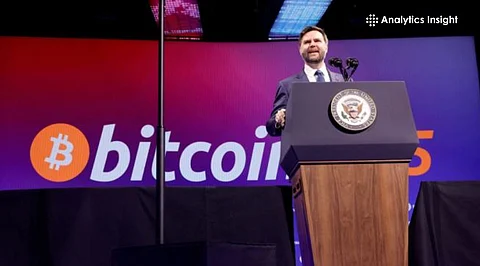

Pakistan announced a Strategic Bitcoin Reserve, inspired by U.S. policy.
Regulators reaffirm that crypto remains illegal, confusing.
Lawmakers demand clarity to protect investors and align policy.
Pakistan's announcement of a government-backed Strategic Bitcoin Reserve has ignited a firestorm of controversy, exposing deep contradictions within the nation's cryptocurrency policy. While the federal government promotes digital asset initiatives, key financial regulators maintain a firm stance against cryptocurrency, leaving investors and policymakers grappling with uncertainty.
On May 28, 2025, Bilal Bin Saqib, CEO of the Pakistan Crypto Council and newly appointed Special Assistant to Prime Minister Shehbaz Sharif on Blockchain and Cryptocurrency, unveiled plans for Pakistan's first government-led Strategic Bitcoin Reserve at the Bitcoin 2025 Vegas conference.
Saqib emphasized the country's inspiration from the United States, stating, "We want to thank the US because we are getting inspired by them." He further announced that Pakistan would allocate 2,000 megawatts of electricity to support Bitcoin mining and artificial intelligence data centers, signaling a significant commitment to the digital economy.
Despite the high-profile announcement, Pakistan's financial authorities have reiterated their longstanding prohibition on cryptocurrency activities. Finance Secretary Imdadullah Bosal clarified that, under current regulations, cryptocurrency transactions remain illegal in Pakistan.
He stated, "There will be a legal framework only when the government formally takes a decision, but the current legal status is that crypto is not a legal tender in Pakistan."
Echoing this sentiment, Sohail Jawad, Executive Director of the State Bank of Pakistan (SBP), confirmed that the central bank had declared cryptocurrencies illegal in 2024, a position that remains unchanged. He noted that the Financial Monitoring Unit continues to forward cryptocurrency-related cases to law enforcement authorities.
The conflicting messages from the government and regulatory bodies have not gone unnoticed by lawmakers. During a session of the National Assembly's Standing Committee on Finance and Revenue, members expressed confusion and concern over the government's stance. Mirza Ikhtiar Baig highlighted the contradiction of promoting cryptocurrency investments while maintaining their illegality, warning of potential severe repercussions for investors.
Committee member Osama Ahmed questioned the government's oversight of cryptocurrency activities, pointing out that citizens were using digital assets for transactions such as importing vehicles from Japan.
He inquired whether the State Bank had taken any action regarding these activities and whether the government was supervising cryptocurrency mining operations.
The Pakistan Crypto Council, established in March 2025, aims to integrate blockchain technology and digital assets into the country's financial landscape. Led by Bilal Bin Saqib, the council's objectives include developing a comprehensive, FATF-compliant regulatory framework for digital assets, launching Bitcoin mining initiatives, and overseeing blockchain integration in governance, finance, and land records.
The council also plans to facilitate the licensing and oversight of virtual asset service providers and promote investor protection and Web3 ecosystem growth in Pakistan.
Also Read: Bitcoin Price Dips Below $107K: Is This a Pause or a Trend Reversal?
Pakistan's attempt to position itself as a leader in the digital economy faces significant hurdles due to the current legal prohibitions on cryptocurrency. The government's ambitious plans for a Strategic Bitcoin Reserve and investment in digital infrastructure are at odds with the regulatory framework enforced by the State Bank of Pakistan and the Ministry of Finance.
For Pakistan to successfully integrate into the global digital economy, a clear and cohesive policy on cryptocurrency is essential. This would involve reconciling the government's strategic initiatives with the regulatory stance of financial authorities, ensuring that investors and stakeholders have a consistent and transparent framework within which to operate.
Also Read: Trump-Backed World Liberty Financial Joins Forces with Pakistan Crypto Council
